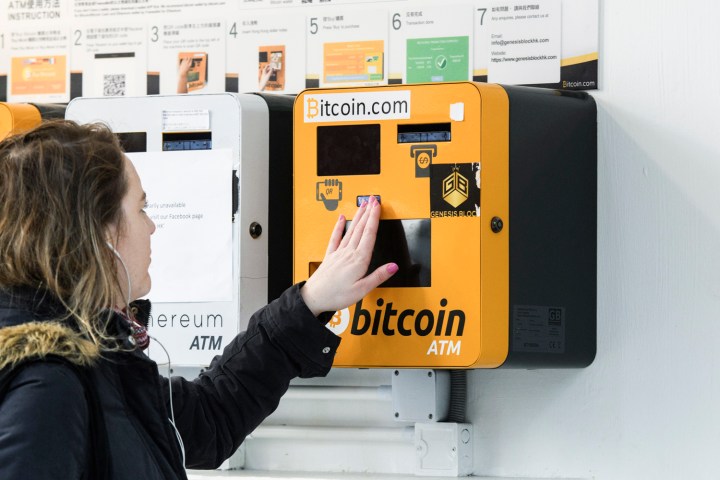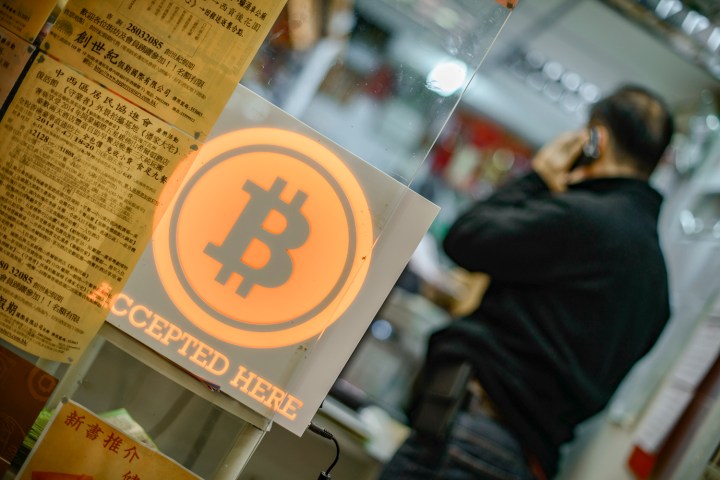
Beyond the difficulties presented by the decentralization of bitcoin itself, governments and regulatory bodies have shown they lack understanding of technological topics, and bitcoin is one of the most complex. As governments struggle to ban technologies like Tor and encryption, it seems impossible to imagine them gaining the ability to truly impact bitcoin – and its alt-coin contemporaries – in a way that could impede its progress.
Historical precedent
The oversight jitters are understandable. There have been some attempts at regulation over the years, and now that bitcoin’s value has spiked to unprecedented new heights, there is greater discussion than ever from governments around the world. Perhaps it’s no wonder that half of those surveyed in a recent report of bitcoin owners claimed they didn’t want any regulation of cryptocurrency in the coming years.
The blockchain it’s built upon does not require an institution to operate it.
In December 2013, the Chinese government banned financial institutions from using bitcoin, causing a downturn in the cryptocurrency’s value that would set a precedent for its worth over the coming years. Less than a year later, in April 2014, several Chinese bitcoin exchanges had their bank accounts closed. That spurred concern that government oversight limiting access to fiat currency (traditional, ‘real world’ currency) could be lead a wave of future regulations to curtail bitcoin’s growth. Yet loopholes in the crackdown meant many exchanges stayed in business, and bitcoin’s price rose some 25 percent in the 10 days that followed.
The U.S. has made localized attempts to regulate specific aspects of bitcoin. New York State requires a “BitLicense” for bitcoin related businesses, with specific rules for employee vetting and identification. Just last month, the IRS won a landmark ruling to gain access to information about 14,000 historic Coinbase accounts, in an attempt to gather back taxes from owners.
While some of those instances are more concerning than others, none of it has stopped bitcoin’s growth. That reveals the flaws of any future attempts to crack down on bitcoin’s use.
Bitcoin’s intrinsic impossible oversight
There are several key components to bitcoin, and its fellow cryptocurrencies, which make them successful as methods of transaction, and stores of value. They’re easy to transfer, no middle-man is required, and they can’t be linked to owners who don’t want to be identified. These are all big problems for any government wanting to have a greater say in how they operate.
- 3. Bitcoin
Bitcoin is not linked to any territory or financial institution. There are tens of popular exchanges, and even if there weren’t, all you need are wallets and a network connection to be able to conduct bitcoin transactions. The blockchain it’s built upon does not require any one institution to operate it, and indeed is the complete antithesis of such an idea, operating as a public ledger rather than a private one.
Without that central location to shut down, any meaningful crackdown would have to be a global endeavor. Even if a country was to somehow prevent bitcoin transactions from taking place within their borders, a simple VPN or Proxy system would let users operate internationally with little issue.
The question is not whether #bitcoin should be regulated, but whether it *can* be regulated. The reality is "No". The rest is nostalgia.
— Andreas (aantonop Team) (@aantonop) December 31, 2016
If governments could effectively stop a peer to peer network, they would’ve shut down the illegal practices of torrent websites over a decade ago. Even the success of the hydra-like torrent sites isn’t a perfect analogy for bitcoin, though, because cryptocurreny’s legal status is far easy to debate.
A fairer comparison would be the so-called dark web. Although individual sites, servers and people involved with various activities on there may occasionally be arrested for illegal activities, it would be ridiculous to think any government could regulate the entire network. Trying to ban bitcoin or regulate it in a manner that allows actual oversight would be much the same. It’s impossible on a technical level.
Even tracking individual people who own specific wallets is difficult. While the public blockchain might allow governments or law enforcement to track down certain bitcoins, tying them to a real-world person is very difficult. An owner can hide his or her identity with a VPN, Tor, or even physically move a wallet into cold storage (offline) form, making it invisible to the world.
Is there any wonder that bitcoin is being used for money laundering, ransomware and other organized crime tactics? Take the additional step to throw your bitcoins through a tumbler that jumbles up your bitcoins with many others, and then spits them out into another wallet not linked with the original, and the trail quickly goes cold.
The caveats
The most serious impact regulation could have on bitcoin, is in limiting the ability to “cash out,” converting the cryptocurrency into more traditional, fiet currencies like U.S. Dollars. Making that difficult could cause problems in the short term, though it would need to be a strategy that was enacted all over the world. Almost all global currencies can be traded online without difficulty, so if even one territory still facilitated a trade in cryptocurrency into local denominations, those could then be traded for and cashed out in turn.
If Bitcoin itself was regulated against, then users could simply trade it for another currency.
If bitcoin itself was regulated against, users could simply trade it for another cryptocurrency, and then cash that one out instead. With hundreds of cryptocurrencies now in existence and more emerging all the time, it would be nigh on impossible to stop unless all currencies were barred.
As regulation in other industries has shown, sweeping legislation is incredibly complicated to implement and even more difficult to enforce.
The effectiveness of any such regulation also assumes the need to cash out. Many people see cryptocurrencies like bitcoin as an evolution of existing currency. If we were to reach a point where bitcoin could purchase services and goods of all sorts, why would you need to cash out at all?
If that seems farfetched, just consider the fact that hard cash is uncommon in many countries. Digital transactions online and in person preclude the typical need for real-world money. Cryptocurrencies could be the next part of that evolution.
If you can’t beat’em
Ultimately, the best response to bitcoin is not to limit it, but to embrace the technology and try and work with it.
It certainly won’t be easy, as bitcoin doesn’t operate in a manner that makes integrating it with existing financial models easy. As we discussed in a recent piece on Digital Trends, it’s more like a new version of gold than it is Paypal. Yet it could be both, at some point in the future.
Governments like Japan, which now grants bitcoin legal tender status, or Saudi Arabia, which is working on its own cross-border cryptocurrencies, clearly see the writing on the wall. Bitcoin and its contemporaries are not going anywhere, and any attempt to stop them would be futile.
Helping to create the future of cryptocurrencies with the users and developers would be a much smarter and more effective stance for governments and regulatory bodies to take. Here’s hoping they do.







